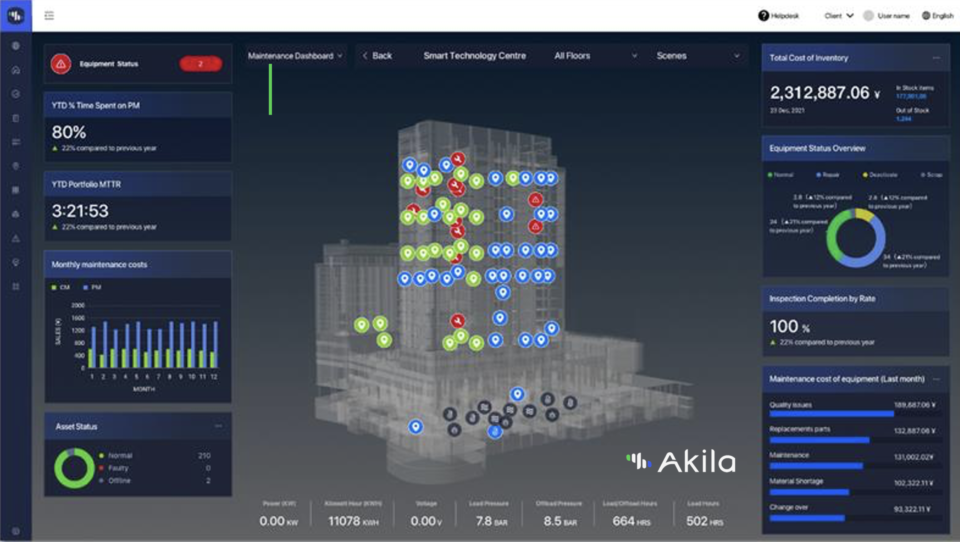Mr. Jackie Zhou has been leading Aden’s dedicated Healthcare division for 6 years. With a background in the medical sector and facility management, Jackie has also been a lecturer at Jiaotong University on the topic of facility management for Healthcare facilities. We spoke to Jackie about the facility management, sustainability and the future of healthcare facilities in China.
What makes facility management for the healthcare sector different?
I would put it like this: a medical facility is like a microcosm of everything that facility managers typically oversee. The difference is mainly about the especially high stakes, requirements and complexity that come with a hospital or assisted-living community. So, we must work in real partnership with the hospital and medical leadership. The stakes are high, and continuous excellence is mandatory.
Why exactly are the stakes so high?
Because in these environments we aren’t just managing a building, we are actively contributing to the patients’ and residents’ well-being, health and recovery. Some facility management solutions will be noticeable right away to patients and visitors – things like hygiene, food service, lighting, security and reception, the acoustics, communal spaces, etc.
Then there are other things which are less visible, but hugely important to facility performance and health outcomes. For example, we can do predictive maintenance to ensure the reliability of the building and its energy-consuming systems; you have HVAC automation that lets us maintain a consistent levels of thermal comfort and efficiency; you have technical projects and upgrades, where we might systemically improve the air filtration or coordinate installation of more efficient chillers and boilers. Those are some examples, the list could go longer.
What inspired the launch of Aden Healthcare?
We launched as a dedicated team in the 2010s, a time when the private healthcare sector in China was growing 20% per year. People wanted a better tier of medical care, and they were increasingly willing to pay for it. Facility management in China hadn’t yet caught up with this demand. We saw a unique opportunity to deliver this through Aden – to build a team of medical sector specialists combined with Aden’s nationwide reach in China and its innovation in merging IFM, energy and digitalization.
Today, we feel that we are uniquely equipped to go beyond just managing the day-to-day problems of traditional FM and become real strategic partners to medical care facilities, helping them achieve their biggest goals for sustainable growth and ESG.
You just mentioned ESG. How is the sector currently doing in terms of sustainability? The environmental impact of medical facilities seems to get less attention than sectors like manufacturing and transport.
This is really important to us. And you are right, people often overlook healthcare as a contributor to global warming. But in fact, healthcare facilities consume 2.5 times more energy per square foot than other commercial buildings. And the IEA has projected that energy demand in healthcare facilities will double between 2016 and 2040. That comes with very clear consequences in terms of carbon impact.
It makes sense when you think about it – a typical hospital is a multi-story building; it has a large footprint and energy-consuming equipment in virtually every room. It needs to remain lighted and powered 24/7; it requires continuous temperature control through HVAC. And then you have the waste, water and energy use in food services, the Scope 3 emissions from purchasing and supply chain, and so on.
Medical groups are certainly aware of this, and of course there is an equally large financial cost that comes from being inefficient. The penalties for non-compliance are starting to get serious as well. So, being ESG-oriented is not just better for the planet, it’s becoming necessary for business. This is why we have made our digital platform Akila such an important pillar of our services. By using this platform as our core tool, we are able to bring transparency to the hospital’s real energy, waste and carbon impact, and then comprehensively track and optimize the buildings’ performance.

In what regions is Aden Healthcare most active?
This team is really focused on China, and we have formed partnerships across the country. In the north, we just celebrated 10 years with United Family Hospital in Tianjin. Going west, Raffles Hospital in Chongqing is one of our most advanced examples of digitalized asset maintenance, which we are doing through the Akila platform. Overall, our biggest hub of activity is on the Eastern seaboard around Shanghai, Zhejiang and Jiangsu. But we are able to work anywhere in China because we have built such a large network over the past 25 years and have Aden people in 80 cities.
I should add that Aden has a global healthcare footprint. So there are other medical sector partnerships in Southeast Asia, and Aden has done interesting projects in emergency response, remote medical services and telemedicine for large camps and compounds outside of China.
What’s next for Aden Healthcare?
We know that private healthcare is going to keep growing in China, and so will the demands on the sector for compliance, decarbonization and ESG. We will continue classic IFM services while working even more closely with Aden’s technical asset management, renewable energy and digitalization teams. This way, we can help medical-sector clients make the urgent and necessary transition to digitalized and decarbonized services as quickly as possible.
Another aspect that Aden Group is becoming very involved in is design, construction and engineering. By bringing digitalization and BIM technology to this process, it is possible to optimize new medical buildings end-to-end, from the earliest stages of design. You can integrate new energy solutions and innovative uses of building material, so that their construction is far less wasteful and their lifetime carbon impact is as close as possible to net-zero. This is beyond the scope of Aden Healthcare team per se, but the point of being in Aden Group is exactly that – being able to link and optimize all the different aspects that go into managing the built environment to produce the best impact for clients, environment and people.
